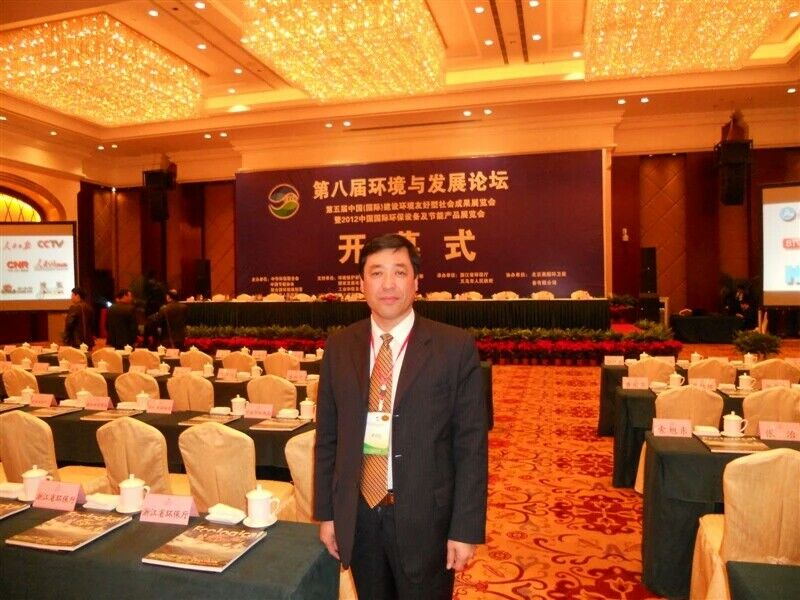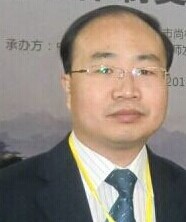Text
正文
The Twelfth China-EU Summit was held in Nanjing, Jiangsu Province of China on 30 November 2009. Premier Wen Jiabao of the State Council of the People's Republic of China attended the meeting on behalf of China. The European Union was represented by the President of the European Council, Prime Minister Fredrik Reinfeldt of Sweden and the President of the European Commission, Mr. Jose Manuel Barroso.
1. Leaders of both sides agreed that the international community faces serious challenges which call for a global response. Global issues such as climate change, financial crisis, energy and resource security, food security, the environment and public health security have been increasingly prominent. Non-traditional security threats, including terrorism, proliferation of weapons of mass destruction, transnational organized crime and major communicable diseases have become global concerns. The instability and uncertainties in the international landscape have posed challenges to world peace and development. It is becoming increasingly urgent for the international community to deepen cooperation and coordinate efforts in tackling these challenges.
2. Both sides stressed that in a complex and ever changing international context China-EU relations increasingly transcend the bilateral framework and take on an international dimension. China and the EU, as comprehensive and strategic partners sharing much common ground on international issues, seek to actively meet global challenges and strive for a peaceful, sustainable and prosperous world which cannot be achieved without the joint efforts and close cooperation of China and the EU. China-EU relations enjoy a broad strategic foundation and the significance of cooperation between the two sides is becoming more evident. The two sides reaffirmed their active commitment to peace and sustainable development of the world, as well as to the peaceful resolution of disputes. They emphasized the importance of effective multilateralism and stressed their support for the central role of the United Nations in international affairs.
3. Leaders of both sides applauded the achievements in the development of bilateral relations and expressed satisfaction with the ever maturing and deepening China-EU comprehensive strategic partnership. Both sides agreed that the political mutual trust is enhancing, the pragmatic cooperation in economy, trade and other fields is deepening and expanding, the level of cultural and people-to-people exchanges is on the rise. Both sides reaffirmed their continued support for each other's peaceful and sustainable development. The Chinese side welcomed the ratification of the Lisbon Treaty, congratulating the EU on recent appointments and institutional changes and reaffirmed its continued firm support for the EU integration process. The EU commended the PRC's achievements over the past 60 years, welcoming the continuation of the policy of reform and opening up. The EU reaffirmed its support for China's peaceful development and respect for China's sovereignty and territorial integrity. Both sides emphasized that China and the EU enjoy great potential of cooperation and broad prospects for bilateral relations. The two sides agreed to stay committed to the strategic nature of the China-EU relationship and pledged to seek greater development of the comprehensive strategic partnership based on mutual respect, equality, mutual benefit, openness and win-win cooperation.
三、雙方積極評價中歐關系發展成就,對中歐全面戰略伙伴關系日臻成熟和深入表示滿意,認為雙方政治互信不斷提升,經貿等各領域務實合作不斷擴大和深化,人文交流的水平不斷提高。雙方表示將繼續支持彼此的和平和可持續發展。中方歡迎《里斯本條約》獲得批準,祝賀歐盟推選出新領導人和歐盟機構調整,重申將繼續堅定支持歐盟一體化建設。歐方積極評價新中國六十年取得的成就,歡迎中國繼續改革開放政策。歐方重申支持中國的和平發展,尊重中國的主權和領土完整。雙方強調中歐合作潛力巨大,雙方關系前景廣闊。雙方決心繼續堅持中歐關系的戰略定位,在相互尊重、平等互利、開放和合作共贏的基礎上,全力推動中歐全面戰略伙伴關系在新形勢下取得更大發展。
4. Leaders stressed the important role of China-EU political and sectoral dialogues in enhancing the strategic relationship, particularly the strategic guidance given by the China-EU Summit mechanism. The two sides expressed determination to strengthen political dialogue and cooperation on bilateral, regional and international issues, so as to further promote understanding and consensus and build stable and strategic mutual trust.
Leaders acknowledged that the visit of the European Commission College in 2008 and the subsequent visit of Premier Wen in 2009 advanced their overall relations in a strategic and forward-looking way and agreed that such visits should be continued.
Leaders acknowledged that the visit of the European Commission College in 2008 and the subsequent visit of Premier Wen in 2009 advanced their overall relations in a strategic and forward-looking way and agreed that such visits should be continued.
5. Leaders commended the progress in the negotiations on the China-EU Partnership Cooperation Agreement/updating the 1985 China-EEC Trade and Economic Cooperation Agreement. They encouraged the competent authorities to speed up the negotiations for an early conclusion.
6. The EU reaffirmed its commitment to one China policy and supported peaceful development in the relations across the Taiwan Straits.
7. The two sides reaffirmed their commitment to the international treaty system such as in the field of non-proliferation and disarmament. China and the EU agreed to work together constructively in relevant international fora, including the Conference on Disarmament. In particular, the two sides stressed the importance of the early entry into force of the Comprehensive Nuclear-Test-Ban Treaty. Both sides firmly opposed all forms of terrorism and recognized that any measures undertaken to prevent and combat terrorism must comply with obligations under international law. They agreed to strengthen the dialogue on thematic issues such as non-proliferation and anti-terrorism.
8.The two sides emphasized their commitment to the promotion and protection of human rights, the rule of law, and the strengthening of dialogue and cooperation in the field of human rights on the basis of equality and mutual respect. They placed a high value on the China-EU human rights dialogue, including the accompanying legal seminar, and expressed their readiness to work together for constant progress on the ground. The EU welcomed China's commitment to ratifying the International Covenant on Civil and Political Rights (ICCPR) as soon as possible. Both sides confirmed their commitment to cooperate with UN human rights mechanisms.
9. The two sides shared the view that climate change is one of the most important global challenges of our time which demands urgent and cooperative action, and agreed to further strengthen cooperation in this field. They will, consistent with the provisions of the United Nations Framework Convention on Climate Change (UNFCCC) and its Kyoto Protocol and the Bali Roadmap, work together with other parties for a comprehensive, fair and ambitious outcome at the UN Climate Change Conference in December 2009 in Copenhagen, in line with the principle of common but differentiated responsibilities.
The two sides believed that substantially scaled up financial support by developed countries and arrangements to promote technology dissemination in and transfer to developing countries will be an important outcome in Copenhagen. The two sides stressed that ambitious and transparent emission reduction targets by developed countries, and nationally appropriate mitigation actions by developing countries, with a view to promoting the transition to a low carbon economy, supported and enabled by financing, technology and capacity building from developed countries, are crucial to furthering the efforts to address climate change.
The EU welcomed and appreciates the decision by China to set quantified national targets to limit the carbon intensity of its economy, as well as other numerical targets and policy measures as a contribution to address climate change.
China welcomed and appreciates the leading role and great efforts of the EU in addressing climate change.
The two sides believed that substantially scaled up financial support by developed countries and arrangements to promote technology dissemination in and transfer to developing countries will be an important outcome in Copenhagen. The two sides stressed that ambitious and transparent emission reduction targets by developed countries, and nationally appropriate mitigation actions by developing countries, with a view to promoting the transition to a low carbon economy, supported and enabled by financing, technology and capacity building from developed countries, are crucial to furthering the efforts to address climate change.
The EU welcomed and appreciates the decision by China to set quantified national targets to limit the carbon intensity of its economy, as well as other numerical targets and policy measures as a contribution to address climate change.
China welcomed and appreciates the leading role and great efforts of the EU in addressing climate change.
九、雙方認為氣候變化是當今國際社會面臨的最重大挑戰之一,需立即采取合作行動加以應對,同意進一步加強該領域的務實合作。雙方將按照《聯合國氣候變化框架公約》、《京都議定書》和“巴厘路線圖”的要求,在“共同但有區別的責任”原則基礎上,同國際社會一道推動2009年12月在哥本哈根舉行的聯合國氣候變化會議達成全面、公平和具有雄心的結果。
雙方認為,發達國家大幅提高對發展中國家的資金支持,并就向發展中國家轉讓技術做出安排,將是哥本哈根會議的重要成果。雙方強調,發達國家承擔具有雄心的、透明的溫室氣體減排指標,發展中國家在發達國家資金、技術和能力建設支持下采取適當國內減緩行動,以促進向低碳經濟轉型,對進一步致力于應對氣候變化至關重要。
歐方歡迎并贊賞中方決定設立限制碳排放強度的國內量化行動目標,以及其他數字目標和政策措施,為應對氣候變化作出貢獻。
中方歡迎并贊賞歐方在應對氣候變化方面已經發揮的引領作用和作出的很大努力。
10. The two sides recognized the comprehensive cooperation in the field of climate change between China and the EU, and agreed to enhance coordination and cooperation to further implement the China-EU Joint Declaration on Climate Change, and agreed to upgrade the current Partnership on Climate Change. They will under the framework of the Partnership, intensify policy dialogues and practical cooperation on climate change, including but not limited to renewable energy, energy efficiency, joint development, demonstration and transfer of climate-friendly technologies, sustainable urban development, capacity building and regional cooperation, so as to promote continuous development of the Partnership. The two sides recognized that transition to low-carbon economy is an important way to achieve sustainable development.
In this context, they welcomed the recent deepening of their Energy Dialogue, with a view to enhancing the use of clean and sustainable energy as well as global energy security. They also welcomed concrete cooperation in the fields of renewable energy, clean coal, bio fuel and energy efficiency. They thus called for further deepening of cooperation in the energy field.
In this context, they welcomed the recent deepening of their Energy Dialogue, with a view to enhancing the use of clean and sustainable energy as well as global energy security. They also welcomed concrete cooperation in the fields of renewable energy, clean coal, bio fuel and energy efficiency. They thus called for further deepening of cooperation in the energy field.
11. The two sides reaffirmed the aim to develop and demonstrate, in China and in the EU member states, advanced near-zero emission power generation technology through carbon dioxide capture and storage(CCS). China welcomed the Conclusions of the EU Environment Council of 21 October 2009, regarding the follow-up China-EU NZEC project, and the pledge by the European Commission of up to 57 million Euros to the project.
12. Leaders welcomed the substantial discussions held by Foreign Ministers in conjunction with the Summit on international and regional issues of mutual concern, including denuclearization of the Korean Peninsula and the Iranian nuclear issue, the situation in Myanmar and Sri Lanka, as well as developments in Afghanistan and Pakistan. Leaders stressed the important role played by ASEM as a vehicle for dialogue and cooperation between Asia and Europe.
13. China and the EU welcomed trilateral dialogue between China, EU and Africa, and agreed to explore appropriate areas for cooperation. They reaffirmed their commitment to supporting the full and timely achievement of the MDGs and to supporting Africa's sustainable development and early economic recovery.
14. The two sides commended the important role of the previous three G20 Summits in tackling the global financial crisis, and supported G20 to serve as the premier forum for international economic cooperation focusing on world economic, financial and development issues. Both sides agreed, in a spirit of equal partnership, to keep close contact and cooperation on the future development of G20 Summit, and expressed a commitment to work together with other countries and regions in the world to build a fair, just, inclusive, stable and resilient international financial system, and to support the sustainable growth of the economy in their regions and the world at large, not least by fighting all forms of protectionism, keeping open and free trade and strengthening support for developing countries. In line with the three G20 summit communiqués, leaders reaffirmed their commitment to increase the effectiveness, representation and legitimacy of the international financial institutions, implement the targets set by G20 leaders for the reform of the governance structure of international financial institutions within set deadlines. Both sides agreed to further strengthen international financial regulation and stated their support for the important role of the Financial Stability Board and their willingness to ensure the full and timely implementation of their programmes of reform. They also agreed to further intensify cooperation and coordination of their macroeconomic policies, support the new G20 Framework for Strong, Sustainable and Balanced Growth, and reform international financial institutions, so as to make a contribution for global recovery and achieve sustainable growth.
十四、雙方積極評價二十國集團(G20)前三次峰會在應對國際金融危機方面發揮的重要作用,支持G20作為國際經濟合作的主要論壇,繼續關注世界經濟、金融和發展問題。雙方同意本著平等伙伴的精神,就G20峰會未來發展問題保持密切溝通與合作,并表示致力于同全球其他國家和地區共同努力,建立公平、公正、包容、富有韌性和穩定的國際金融體系。雙方同意切實支持各自所在地區和全球經濟可持續增長,特別是要抵制一切形式的保護主義,保持開放和自由的貿易,加強對發展中國家的支持。按照G20三次金融峰會公報精神,雙方領導人重申將加強國際金融機構的有效性、代表性和合法性,并在規定的時限內落實G20領導人關于國際金融機構治理結構改革的目標。雙方同意進一步加強國際金融監管,表示支持金融穩定理事會的重要作用,愿意確保充分、及時地實施各自改革計劃。雙方同意進一步開展宏觀經濟政策協調與合作,支持G20新達成的“強勁、可持續和平衡增長框架”,改革國際金融機制,為全球經濟復蘇和實現可持續增長作出貢獻。
15. Leaders welcomed the discussions in Nanjing on 29 November between the representatives of the euro-area and the Chinese authorities on macroeconomic policy issues.
16. The two sides acknowledged their key role and responsibilities in world trade and shared the view that economic and trade ties between China and the EU is an important and integral part of the comprehensive strategic partnership. To effectively address the current economic and financial crisis, the two sides agreed to step up efforts to promote trade and investment and increase effective market access. The European Union appreciates the efforts of China to undertake trade and investment promotion missions to Europe during the economic downturn.
17. Leaders expressed their determination to work to conclude in 2010 the negotiations on the Doha Development Agenda and their commitment to an ambitious, comprehensive and balanced agreement. They believe that closure of the Doha Round should take place in consistency with its mandate and on the basis of progress already made, including with regard to modalities and call on all WTO Members to work unitedly to close the Round in 2010.
18. Leaders also reaffirmed their commitment to the High Level Economic and Trade Dialogue (HED), and acknowledged that the HED is conducive to advancing their economic and trade relations in a strategic, forward-looking and plan-setting manner. The HED gives a strong political impetus to existing bilateral economic dialogues and mechanisms and encourages them to seek concrete means to advance trade and investment in a balanced way. China and the EU agreed on the importance of using all avenues to expand economic openness and reform in their bilateral relationship and in their respective economies to ensure an open, stable and predictable environment, with a view to creating new business opportunities. China and the EU will seek to facilitate trade and investment among small and medium sized enterprises (SMEs) and explore possibilities of cooperation in other areas, including on trade finance and technology trade. Both sides will work together to enhance trade and investment opportunities arising from the move towards a green economy. In this context, both sides welcomed the 5th China-EU Business Summit and its focus on the "Green Agenda: Sustaining Growth Beyond Recovery".
19. China and the EU agreed that efforts to stimulate demand should be based on transparency and non-discrimination of foreign invested enterprises. They recognized the importance of open and non-discriminatory government procurement policies and agreed to pursue efforts to increase exchanges in this field. The EU expressed support to China's efforts to accede to the WTO Government Procurement Agreement and encouraged China in its preparation of a revised offer.
20. Leaders acknowledged the need for a robust, efficiently enforced and well-functioning IPR system for continued economic development. They committed to step up their cooperation on intellectual property rights. Leaders also welcomed the launch of negotiations on a China-EU Geographical Indications bilateral cooperation agreement.
21. Leaders discussed the politically important issue of Market Economy Status (MES). Both sides look forward to the timely update of the last MES report and recognize the important progress already made by China for the outstanding technical criteria. To that effect, they welcome the launch of a study on the implementation of accounting standards in China.
22. Leaders also welcomed the Forum on China-EU Strategic Partnership successfully held in Beijing in November. China welcomed the strong participation of the EU in Shanghai Expo 2010.
23. Leaders praised the fruitful exchanges and cooperation between China and the EU in a wide range of areas such as science and technology, people-to-people contacts, education, culture, customs, health and emergency management. Leaders welcomed with satisfaction the signing of the agreements and memoranda of cooperation (Annex 1).
24. The two sides agreed to strengthen exchanges and cooperation in various fields and decided:
to deepen customs cooperation, with a view to promoting and facilitating bilateral trade in the face of the current economic crisis and slowdown of international trade, to seek steady progress in implementing the action plan on IPR customs enforcement, to seek agreement by the China -EC Joint Customs Co-operation Committee in the second phase of the pilot project on Smart and Secure Trade Lane, and to strengthen the cooperation on the mutual recognition of Authorized Economic Operator (AEO);
to strengthen China-EU statistical cooperation in areas mutually considered as priorities on the basis of a dialogue on statistical methods and practices;
to further strengthen closer and structured cooperation on industrial product safety, WTO/TBT, consumer product safety, SPS and food safety, so as to protect public health, enhance the confidence of citizens and promote trade;
to further enhance cooperation in civil aviation including the adaptation of air services agreements between China and EU Member States as well as strengthening cooperation in aviation safety, security, environment, economic regulation and air traffic management;
to further strengthen exchanges and cooperation on the basis of the existing good cultural relations, continuously conduct China-EU cultural policy dialogue, and work closely together to push for the implementation of the Convention on the Protection and Promotion of the Diversity of Cultural Expressions;
to further push forward the dialogue mechanism on educational policy, to strengthen their support for high-level talent cultivation, joint research, teaching and training in the languages of their respective country/region, academic staff and student exchange, and to make every effort to increase substantially the number of students exchanges in both directions;
to further promote and deepen partnership between China and Europe by launching 2011 as the China-Europe Year of Youth;
to support the continued constructive dialogue between the China Economic and Social Council (CESC) and the European Economic and Social Committee (EESC);
and to strengthen high-level dialogue and exchanges between think-tanks from both sides, and to promote and support regular exchanges.
to deepen customs cooperation, with a view to promoting and facilitating bilateral trade in the face of the current economic crisis and slowdown of international trade, to seek steady progress in implementing the action plan on IPR customs enforcement, to seek agreement by the China -EC Joint Customs Co-operation Committee in the second phase of the pilot project on Smart and Secure Trade Lane, and to strengthen the cooperation on the mutual recognition of Authorized Economic Operator (AEO);
to strengthen China-EU statistical cooperation in areas mutually considered as priorities on the basis of a dialogue on statistical methods and practices;
to further strengthen closer and structured cooperation on industrial product safety, WTO/TBT, consumer product safety, SPS and food safety, so as to protect public health, enhance the confidence of citizens and promote trade;
to further enhance cooperation in civil aviation including the adaptation of air services agreements between China and EU Member States as well as strengthening cooperation in aviation safety, security, environment, economic regulation and air traffic management;
to further strengthen exchanges and cooperation on the basis of the existing good cultural relations, continuously conduct China-EU cultural policy dialogue, and work closely together to push for the implementation of the Convention on the Protection and Promotion of the Diversity of Cultural Expressions;
to further push forward the dialogue mechanism on educational policy, to strengthen their support for high-level talent cultivation, joint research, teaching and training in the languages of their respective country/region, academic staff and student exchange, and to make every effort to increase substantially the number of students exchanges in both directions;
to further promote and deepen partnership between China and Europe by launching 2011 as the China-Europe Year of Youth;
to support the continued constructive dialogue between the China Economic and Social Council (CESC) and the European Economic and Social Committee (EESC);
and to strengthen high-level dialogue and exchanges between think-tanks from both sides, and to promote and support regular exchanges.
——深化海關合作,在當前經濟危機和國際貿易放緩的形勢下加強合作,促進和便利雙方貿易,爭取在實施海關知識產權保護合作行動計劃方面取得穩步進展,爭取中國和歐共體聯合海關合作委員會就安全智能貿易航線試點計劃下一階段合作達成協議,加強經認證經營者項目(AEO)互認的合作;
——在就統計方法和實踐開展對話的基礎上,在相互視為優先的領域加強中歐間的統計合作;
——繼續加強中歐在工業品安全、WTO/TBT、消費品安全、SPS和食品安全領域的更緊密的機制化合作,以保護消費者健康、增強公民信心并促進貿易;
——繼續加強民航合作,包括調整歐盟成員國與中國的航空服務協定,以及加強在航空安全、安保、環境、經濟法規和空中交通管理等方面的合作;
——在業已存在的良好文化關系的基礎上進一步加強交流與合作,繼續開展中歐文化政策對話,并在推動實施《保護和促進文化表現形式多樣性公約》方面密切協作;
——繼續推進教育政策對話磋商機制,加大對高層次人才培養、聯合研究、各自國家/地區語言教學與培訓以及師生交流方面的支持力度,大幅增加學生雙向訪問;
——啟動2011中歐青年年,以進一步促進和深化中歐伙伴關系;
——支持中國經濟社會理事會與歐盟經濟社會委員會繼續開展建設性對話;
——加強中歐智庫間的高層次對話與交流,推動并支持這一交流機制化;
25. The EU expressed gratitude to the Jiangsu Province for hosting the summit. Leaders supported the large and growing exchanges between different regions of China and the EU, including the Jiangsu Province.
Annex 1
The Memorandum of Understanding launching phase II of the Near Zero Emission Coal Project
The Memorandum of Understanding on Consultation and Cooperation Mechanism on Industrial sectors
The Memorandum of Understanding on Cooperation Framework on Energy Performance and Quality in the Construction Sector
The Financing Agreement for the EU-China Environmental Governance Programme
The Financing Agreement of the new Trade project "Support to China's sustainable trade and investment system"
Agreements and memoranda signed at the 12th China-EU Summit
The renewal of the Science and Technology Agreement The Memorandum of Understanding launching phase II of the Near Zero Emission Coal Project
The Memorandum of Understanding on Consultation and Cooperation Mechanism on Industrial sectors
The Memorandum of Understanding on Cooperation Framework on Energy Performance and Quality in the Construction Sector
The Financing Agreement for the EU-China Environmental Governance Programme
The Financing Agreement of the new Trade project "Support to China's sustainable trade and investment system"










